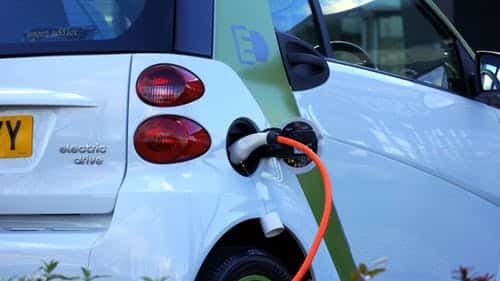U.S. Energy Department’s Guidance on Infrastructure Law Definition Supports Domestic Battery Supply Chain

The U.S. Department of Energy (DOE) has finalized its guidance clarifying the statutory definition of foreign entity of concern, or FEOC, in a section of the 2021 Infrastructure Investment and Jobs Act, or IIJA, that applies to programs related to the battery supply chain. This interpretive guidance is expected to assist automakers and other stakeholders in identifying FEOCs in their battery supply chain.
The final guidance regarding the definition of the FEOC is similar to the definition originally proposed in December 2023, with some amendments and clarifications that incorporate public comments. The guidance is intended to reduce the involvement of FEOCs in domestic battery supply chains, and support domestic and friend-shored materials processing and manufacturing.
The U.S. Treasury Department and Internal Revenue Service have issued their final rule implementing the section 30D Clean Vehicle Tax Credit in the 2022 Inflation Reduction Act. This rule cross references DOE’s FEOC interpretive guidance. The IIJA provides DOE $6 billion to support domestic battery material processing, manufacturing, and recycling and directs DOE to prioritize applicants that will not use battery material supplied by or originating from an FEOC. Similarly, DOE is required to prioritize recycling applicants who will not export recovered critical materials to a FEOC.
Plug in electric vehicle sales have risen significantly, increasing U.S. reliance on foreign sources for vital processed critical minerals required to produce electric vehicle batteries. The Biden administration, acknowledging this, has taken action, such as the implementation of the FEOC provision in the IIJA to secure a dependable and durable battery supply chain obtained principally in the U.S. and allied trading nations.
The FEOC is defined as “owned by, controlled by, or subject to the jurisdiction or direction of a government of a foreign country that is a covered nation.” A covered nation is defined as North Korea, Iran, Russia and China. In accordance with the final rule of the section 30D Clean Vehicle Tax Credit, an electric vehicle that contains battery components produced or assembled by a FEOC will be ineligible to receive tax credit starting in 2024. Electric vehicles with batteries containing critical minerals extracted, processed or recycled by a FEOC will not be eligible for the tax credit from 2025.
EnerKnol Pulses like this one are powered by the EnerKnol Platform—the first comprehensive database for real-time energy policy tracking. Sign up for a free trial below for access to key regulatory data and deep industry insights across the energy spectrum.
ACCESS FREE TRIAL